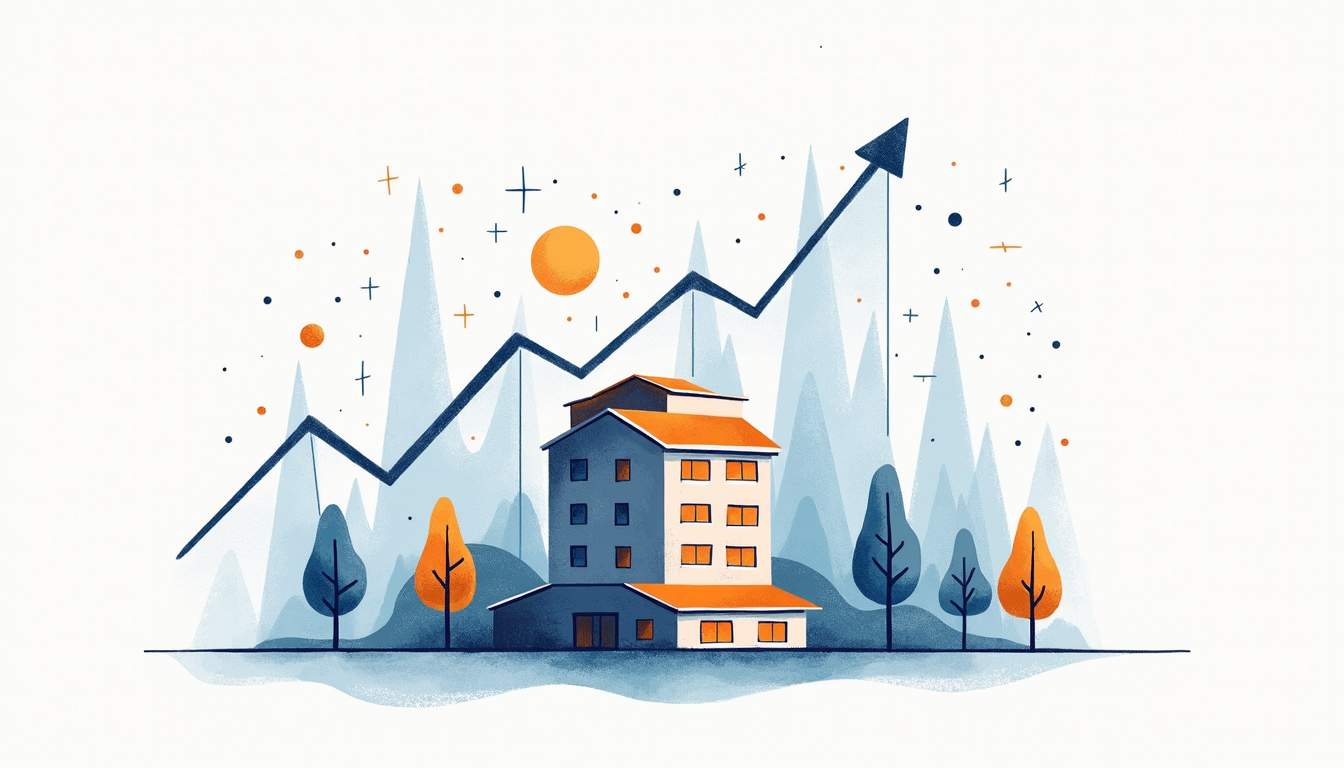Introduction to Forecast Accuracy in Hotel Revenue Management
Forecast accuracy is a critical component of hotel revenue management, which encompasses the strategies and techniques used by hotels to optimize their revenue. The essence of revenue management lies in predicting future demand for hotel rooms and services, allowing hoteliers to make informed pricing and inventory decisions. Accurate forecasts enable hotels to maximize occupancy rates, optimize pricing strategies, and ultimately enhance profitability.

In the context of hotel revenue management, forecast accuracy refers to the degree to which predicted demand aligns with actual demand. This alignment is vital for effective decision-making, as it influences pricing, marketing strategies, and resource allocation. A high level of forecast accuracy can lead to increased revenue, while poor forecasting can result in lost opportunities and decreased profitability.
This glossary entry will explore the various aspects of forecast accuracy within hotel revenue management, including its importance, methodologies for improving accuracy, common challenges faced by hoteliers, and the role of technology in enhancing forecasting capabilities.
The Importance of Forecast Accuracy
Forecast accuracy is paramount in hotel revenue management for several reasons. Firstly, it directly impacts pricing strategies. When hotels can accurately predict demand, they can set competitive prices that maximize revenue without sacrificing occupancy. Conversely, inaccurate forecasts can lead to overpricing during low-demand periods or underpricing during high-demand periods, both of which can negatively affect revenue.

Secondly, accurate forecasts enable effective inventory management. Hotels must balance the availability of rooms with anticipated demand to avoid both overbooking and underbooking. Overbooking can lead to customer dissatisfaction and damage to the hotel’s reputation, while underbooking can result in lost revenue opportunities. By employing accurate forecasting techniques, hotels can better manage their inventory and ensure a smooth guest experience.
Lastly, forecast accuracy supports strategic planning and budgeting. Hotels that can predict future demand with a high degree of accuracy are better positioned to allocate resources efficiently, plan marketing campaigns, and make informed investment decisions. This strategic foresight can lead to a more sustainable business model and long-term profitability.
Methodologies for Improving Forecast Accuracy
Historical Data Analysis
One of the foundational methodologies for improving forecast accuracy is the analysis of historical data. By examining past occupancy rates, pricing trends, and seasonal fluctuations, revenue managers can identify patterns that can inform future predictions. Historical data serves as a benchmark, providing insights into how external factors, such as holidays or local events, influence demand.
Hotels often utilize data from multiple sources, including internal reservation systems, market reports, and competitor analysis. By aggregating this data, revenue managers can create a comprehensive picture of demand trends, allowing for more accurate forecasting. Additionally, historical data can help identify anomalies or outliers, which can be adjusted for in future forecasts.
However, relying solely on historical data can be limiting, as it may not account for sudden changes in market conditions or consumer behavior. Therefore, it is essential to complement historical analysis with other forecasting methodologies.
Market Trends and External Factors
In addition to historical data, revenue managers must consider current market trends and external factors that can influence demand. Economic indicators, such as unemployment rates and consumer confidence, can significantly impact travel behavior and hotel occupancy. For instance, during economic downturns, leisure and business travel may decline, leading to lower demand for hotel rooms.
Moreover, social and cultural trends, such as the rise of remote work or changes in travel preferences, can also affect demand. For example, an increase in staycations or a growing interest in eco-friendly travel can create new opportunities for hotels to attract guests. By staying informed about these trends, revenue managers can adjust their forecasts to reflect changing consumer behavior.
Additionally, local events, such as conferences, festivals, or sporting events, can create spikes in demand that may not be evident from historical data alone. By monitoring local calendars and collaborating with event organizers, hotels can better anticipate these demand surges and adjust their pricing and inventory strategies accordingly.
Advanced Forecasting Techniques
To enhance forecast accuracy, many hotels are adopting advanced forecasting techniques, including statistical modeling and machine learning algorithms. These methods leverage large datasets to identify complex patterns and relationships that traditional forecasting methods may overlook. For instance, machine learning algorithms can analyze vast amounts of data from various sources, including online reviews, social media sentiment, and competitor pricing, to generate more accurate demand predictions.
Statistical modeling techniques, such as regression analysis and time series forecasting, can also be employed to quantify the relationships between different variables and predict future demand. By incorporating multiple variables, such as seasonality, lead time, and market conditions, these models can provide a more nuanced understanding of demand dynamics.
However, implementing advanced forecasting techniques requires a certain level of expertise and resources. Hotels must invest in training staff, acquiring the necessary technology, and continuously refining their models to ensure accuracy. Despite these challenges, the potential benefits of improved forecast accuracy make these investments worthwhile.
Common Challenges in Achieving Forecast Accuracy
Data Quality and Availability
One of the most significant challenges in achieving forecast accuracy is the quality and availability of data. Inaccurate or incomplete data can lead to flawed forecasts, resulting in poor decision-making. Hotels must ensure that they are collecting accurate data from reliable sources and that this data is regularly updated to reflect current market conditions.
Moreover, many hotels struggle with data silos, where information is stored in separate systems that do not communicate with each other. This fragmentation can hinder the ability to create a comprehensive view of demand and can lead to inconsistencies in forecasting. To overcome this challenge, hotels should invest in integrated revenue management systems that consolidate data from various sources, enabling more accurate forecasting.
Additionally, the fast-paced nature of the hospitality industry means that market conditions can change rapidly. Hotels must be agile in their forecasting processes, regularly updating their predictions based on the latest data and trends. This requires a proactive approach to data management and a commitment to continuous improvement in forecasting methodologies.
Market Volatility and Uncertainty
Market volatility and uncertainty pose another significant challenge to forecast accuracy. Events such as economic downturns, natural disasters, or global pandemics can drastically alter demand patterns, making it difficult for hotels to predict future occupancy accurately. The COVID-19 pandemic, for example, led to unprecedented fluctuations in travel behavior, forcing hotels to adapt their forecasting models to account for new realities.
To mitigate the impact of market volatility, hotels should adopt flexible pricing strategies that allow them to respond quickly to changing demand conditions. This may involve implementing dynamic pricing models that adjust rates based on real-time demand signals. Additionally, hotels can enhance their forecasting capabilities by conducting scenario planning, which involves creating multiple forecasts based on different potential outcomes. This approach enables hotels to prepare for various scenarios and make informed decisions even in uncertain environments.
Furthermore, collaboration with industry partners, such as travel agencies and local tourism boards, can provide valuable insights into market trends and demand fluctuations. By sharing data and insights, hotels can improve their forecasting accuracy and better navigate periods of uncertainty.
The Role of Technology in Enhancing Forecast Accuracy
Revenue Management Systems (RMS)
Revenue Management Systems (RMS) play a crucial role in enhancing forecast accuracy for hotels. These sophisticated software solutions integrate various data sources, including historical performance, market trends, and competitor pricing, to generate accurate demand forecasts. RMS utilize advanced algorithms and machine learning techniques to analyze this data, providing revenue managers with actionable insights to optimize pricing and inventory strategies.

By automating the forecasting process, RMS can significantly reduce the time and effort required for manual analysis, allowing revenue managers to focus on strategic decision-making. Additionally, RMS can continuously learn from new data, improving their forecasting accuracy over time. This adaptability is particularly valuable in a rapidly changing market, where demand patterns can shift unexpectedly.
Moreover, many RMS offer user-friendly dashboards and reporting tools that enable revenue managers to visualize data and track performance metrics. These features facilitate better communication and collaboration among hotel staff, ensuring that everyone is aligned on revenue goals and strategies.
Data Analytics and Business Intelligence Tools
In addition to RMS, data analytics and business intelligence tools are essential for enhancing forecast accuracy in hotel revenue management. These tools enable hotels to analyze large datasets, identify trends, and generate insights that inform forecasting decisions. By leveraging data analytics, hotels can uncover hidden patterns in guest behavior, pricing strategies, and market dynamics, leading to more accurate demand predictions.
Business intelligence tools also facilitate data visualization, making it easier for revenue managers to interpret complex data and communicate findings to stakeholders. This clarity is crucial for aligning teams around revenue goals and ensuring that everyone understands the rationale behind pricing and inventory decisions.
Furthermore, integrating data analytics with RMS can create a powerful synergy that enhances forecasting capabilities. By combining the predictive power of RMS with the analytical insights provided by business intelligence tools, hotels can achieve a more comprehensive understanding of demand dynamics and optimize their revenue management strategies accordingly.
Conclusion
In conclusion, forecast accuracy is a vital aspect of hotel revenue management that directly impacts pricing strategies, inventory management, and overall profitability. By employing a combination of historical data analysis, market trend assessment, and advanced forecasting techniques, hotels can enhance their forecasting capabilities and make informed decisions that drive revenue growth.
Despite the challenges posed by data quality, market volatility, and uncertainty, hotels can leverage technology, such as Revenue Management Systems and data analytics tools, to improve forecast accuracy. By embracing a proactive and data-driven approach to revenue management, hotels can navigate the complexities of the hospitality industry and achieve sustainable success.
Ultimately, the ability to accurately forecast demand is not just a technical skill; it is a strategic advantage that can set hotels apart in a competitive market. As the hospitality landscape continues to evolve, the importance of forecast accuracy will only grow, making it essential for hoteliers to continuously refine their forecasting methodologies and embrace innovative solutions.
Maximize Your Hotel’s Revenue with Prosper Hotels
Understanding the importance of forecast accuracy is just the beginning. At Prosper Hotels, we take your hotel’s revenue management to the next level. Our team of experts is ready to assist you in harnessing the power of precise forecasting, innovative digital marketing, and streamlined group housing services to unlock your hotel’s full potential. Embrace the strategic advantage that comes with expert revenue management and join the many hotels thriving under our guidance. Learn More about how Prosper Hotels can contribute to your hotel’s success and your team’s satisfaction.


 Drive More Hotel Revenue
Through Untapped Strategies
Drive More Hotel Revenue
Through Untapped Strategies
